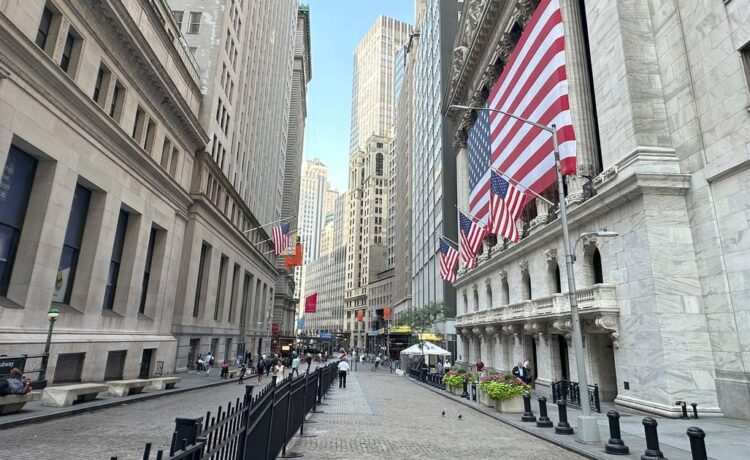CrowdStrike’s stock tumbled 9.6%, while Microsoft was flat.
Long lines of frustrated fliers formed at airports around the world as the outage hit check-in procedures, which initially helped pull down U.S. airline stocks. But they quickly pared their losses, and United Airlines flipped to a gain of 0.1%. It said many travelers may experience delays, and it issued a waiver to make it easier to change travel plans.
American Airlines Group edged down by 0.3%, and Delta Air Lines slipped 0.4%.
Corporate profit reports were also moving stock prices, and Comerica dropped 12.7% even though it delivered much better earnings for the spring than analysts expected. The bank said it received a preliminary notification that it was not selected to continue as the issuer of the Direct Express debit card for about 4.5 million federal benefit recipients, a program it’s had since 2008.
American Express dropped 4.1% after its revenue for the latest quarter fell short of analysts’ forecasts. It was one of the heaviest weights on the S&P 500 despite reporting stronger profit than expected.
On the winning side of Wall Street was Huntington Bancshares. It rose 3% after reporting better profit for the latest quarter than expected. It delivered growth in various forms of profit as its total deposits increased.
Netflix was flipping between gains and losses after the streaming giant reported stronger profit for the latest quarter than analysts expected. It was most recently flat.
Halliburton fell 4.1% after the provider of services to the energy industry matched analysts’ expectations for profit last quarter but missed for revenue. Its rival, SLB, added 3.7% after its profit topped expectations.
The broad S&P 500 index is on track for its worst week since April, even though it set an all-time high on Tuesday. At first, pressure built on the Big Tech stocks that have been the market’s biggest winners this year, amid criticism they simply grew too expensive after their prices rushed so high. Nvidia, for example, is up more than 140% for the year so far amid Wall Street’s frenzy around artificial-intelligence technology.
Such declines pack a hard punch on the S&P 500 because it gives more weight to stocks with larger values, and Big Tech companies are by far Wall Street’s most massive. Gains for some previously unloved areas of the market, including smaller stocks and comapnies whose profits are closely tied to the economy’s strength, had helped to offset some of those declines.
“This rotation can continue, but it doesn’t always have to be where they’re rising faster, it could be because they are falling less,” according to Brian Jacobsen, chief economist at Annex Wealth Management. “The eventual improvement in fundamentals of small and value could help cushion the downside and provide great long-term opportunities.”
On Thursday, Wall Street saw a washout that pulled down most stocks across the market, including those beaten-down smaller companies and what are called “value” stocks. It’s a step back for U.S. stocks after the S&P 500 has set an all-time high 38 times this year.
Besides the surges for Big Tech stocks, hopes for coming cuts to interest rates by the Federal Reserve have also buoyed the market and sent Treasury yields lower.
Yields were holding steady in the bond market on Friday. The yield on the 10-year Treasury remained at 4.20%, where it was late Thursday.
In stock markets abroad, indexes were mostly lower in Europe and Asia. Stock indexes fell 2% in Hong Kong and rose 0.2% in Shanghai after Chinese officials briefed reporters in Beijing on the outcome of a top-level meeting of the ruling Communist Party. They provided some details of the sweeping blueprint it endorsed for making China a leader in technology, building its financial markets and raising living standards.
___
AP Business Writers Matt Ott and Elaine Kurtenbach contributed.













